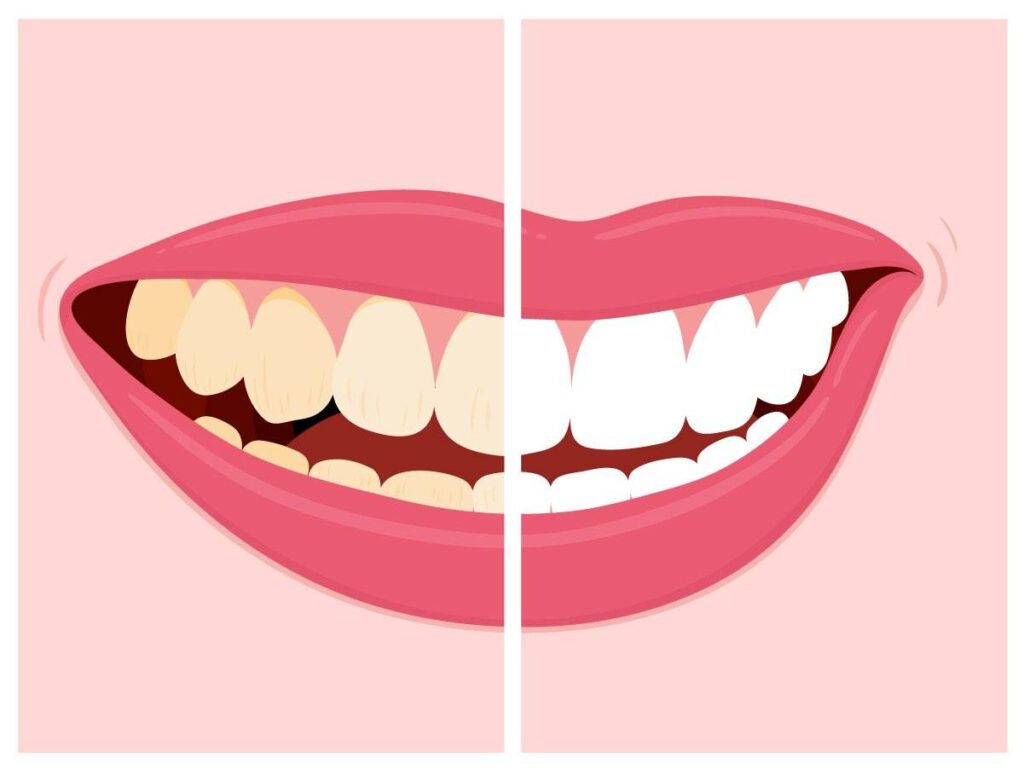A bright smile is something many people strive for, and the internet is filled with DIY solutions that promise to deliver whiter teeth using common household items. From baking soda scrubs to lemon juice rinses, these “natural” remedies are marketed as safe, affordable, and effective alternatives to professional treatments. However, while the word “natural” might sound more appealing, these methods often come with significant risks that can harm your teeth and overall oral health.
The Risks of Natural Teeth Whitening
1. Enamel Erosion
Many natural whitening remedies, such as lemon juice, apple cider vinegar, and other acidic substances, claim to lift stains by breaking down discoloration on the tooth’s surface. While they might make your teeth appear whiter temporarily, these acidic solutions erode tooth enamel over time. Once enamel is lost, it cannot regenerate, leaving your teeth vulnerable to sensitivity, decay, and permanent discoloration.
2. Increased Sensitivity
DIY methods like brushing with baking soda or hydrogen peroxide can lead to heightened tooth sensitivity. Baking soda is abrasive, and prolonged use can wear down enamel. Similarly, hydrogen peroxide, especially in concentrations higher than recommended for safe use, can irritate the gums and expose the sensitive dentin beneath the enamel.
3. Gum Irritation and Damage
Some natural whitening remedies can harm soft tissues in the mouth. For instance, hydrogen peroxide and acidic fruits can irritate or burn the gums when applied improperly. This damage not only causes discomfort but can also increase the risk of infection.
4. Uneven Results
Unlike professional treatments, natural whitening lacks precision. You might end up with unevenly whitened teeth, as these methods cannot address intrinsic stains (those deep within the tooth). Uneven whitening can make your smile look patchy or unnatural.
5. Lack of Scientific Evidence
Many natural teeth whitening hacks are not backed by scientific research. Recommendations for using ingredients like turmeric or activated charcoal have gone viral on social media, but studies often fail to confirm their efficacy and safety. Without clear evidence, following these trends can do more harm than good.
Common Natural Whitening Methods and Their Dangers
Baking Soda
- What it does: Acts as a mild abrasive to scrub away surface stains.
- The risk: Overuse can wear down enamel, leading to sensitivity and a higher risk of cavities.
Lemon Juice or Other Citrus Fruits
- What it does: Claims to bleach teeth with natural acids.
- The risk: The high acidity erodes enamel, leaving teeth permanently weakened.
Activated Charcoal
- What it does: Claims to pull stains from teeth due to its adsorptive properties.
- The risk: Highly abrasive, which can wear down enamel and expose the yellow dentin underneath.
Hydrogen Peroxide
- What it does: Bleaches surface stains on teeth.
- The risk: Overuse or improper application can irritate gums, cause sensitivity, and damage enamel.
Oil Pulling
- What it does: Claims to whiten teeth by removing toxins and plaque when swished in the mouth.
- The risk: Minimal to no proven whitening effects; prolonged swishing can strain jaw muscles.
Why Professional Whitening Is Safer
Professional teeth whitening treatments are designed with safety in mind. Dentists use scientifically proven methods and materials to brighten your smile while minimizing risks. Here’s why it’s worth considering:
- Custom Solutions: Treatments are tailored to your specific needs and oral health condition.
- Supervised Process: Dentists monitor the procedure to prevent over-whitening or gum irritation.
- Effective Results: Professional treatments can address both surface and intrinsic stains for a more uniform appearance.
- Enamel Protection: Dentists use products and techniques that minimize damage to your enamel.
How to Safely Whiten Your Teeth
If you’re looking to enhance your smile without the risks associated with natural whitening remedies, consider the following options:
- Over-the-Counter Whitening Products: Choose ADA-approved whitening strips or toothpastes with safe levels of active ingredients.
- Professional Whitening Treatments: Visit your dentist for in-office whitening or custom take-home kits.
- Prevent Staining: Limit consumption of stain-causing foods and beverages like coffee, tea, and red wine, and maintain a consistent oral hygiene routine.
- Consult Your Dentist: Before trying any whitening method, natural or professional, consult with your dentist to ensure it’s safe for your teeth and gums.
While natural teeth whitening methods might seem appealing for their low cost and accessibility, they often pose significant risks to your oral health. From enamel erosion to gum irritation, the potential damage far outweighs the benefits. Remember, your oral health is too important to risk on unproven DIY methods. For a safer and more effective approach, consult with Dr. Patel of A Caring Dentist, at our Carrollwood or Wesley Chapel locations, to help you achieve a whiter smile without compromising the health of your teeth and gums.

